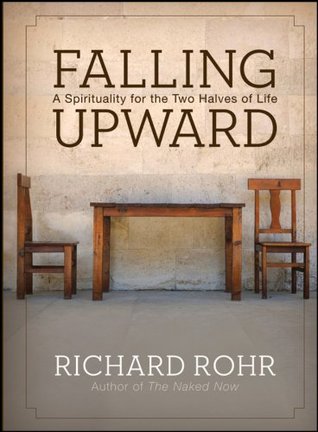More on this book
Community
Kindle Notes & Highlights
by
Richard Rohr
Read between
April 5 - April 15, 2019
There must be, and, if we are honest, there always will be at least one situation in our lives that we cannot fix, control, explain, change, or even understand. For Jesus and for his followers, the crucifixion became the dramatic symbol of that necessary and absurd stumbling stone. Yet we have no positive theology of such necessary suffering, for the most part. Many Christians even made the cross into a mechanical “substitutionary atonement theory” to fit into their quid pro quo worldview, instead of suffering its inherent tragedy, as Jesus did himself. They still want some kind of order and
...more
Here is an assertion that an "either/or" exists when in fact it is taught as a "both/and" in Scripture and in Christianity through the ages.
Unfortunately Rohr characterizes the cross that each follower of Jesus is supposed to take up and carry as a situation "that we cannot fix, control, explain, change, or even understand." When in fact it is an act of service and obedience to the One who redeems us.
The cross that Jesus carried was with purpose, on purpose: "Christ died for our sins in accordance with the Scriptures," Paul said in 1 Corinthians 15:3. Jesus said in Mark 10:45, "For even the Son of Man came not to be served but to serve, and to give his life as a ransom for many."
You might argue with the name "atonement theory" or with some of the specifics of what Jesus' death means as it is explained throughout history, but Scripture is clear that Jesus' death is a ransom. Jesus' death was not something that was beyond explaining or understanding. Jesus embraced the cross for us, purposefully. And he asks us to carry a cross as well.
Whole people see and create wholeness wherever they go; split people see and create splits in everything and everybody. By the second half of our lives, we are meant to see in wholes and no longer just in parts. Yet we get to the whole by falling down into the messy parts—so many times, in fact, that we long and thirst for the wholeness and fullness of all things, including ourselves. I promise you this unified field is the only and lasting meaning of up.
Jeff Singfiel liked this
For Franciscans, Jesus did not need to change the mind of God about humanity, but he came to change the mind of humanity about God. Ours was a Cosmic Christ from all eternity who revealed the eternal love of God on the cross, but God did not need any “payment” to love us.
Here is Rohr's mistake in a nutshell. Few believe that God sacrificed Jesus in order to love us. The testimony of Scripture and of many Christians through the ages is that Jesus died on the cross because God loves us.
That the Franciscans don't emphasize the death of Christ as redemptive or a payment for sin would be understandable if the theme were not discussed regularly throughout Scripture.
And to characterize the payment as a means for God to love us, instead of as an evidence that God already loves us is truly mistaken.
The humility and the thankfulness that Rohr describes in the second half of life are made more possible when one contemplates the love poured out by Jesus on the cross.


